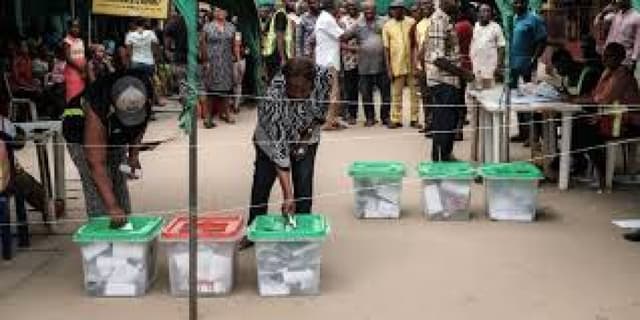
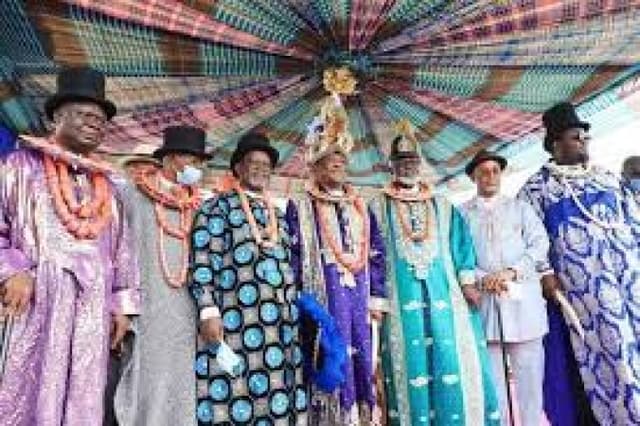
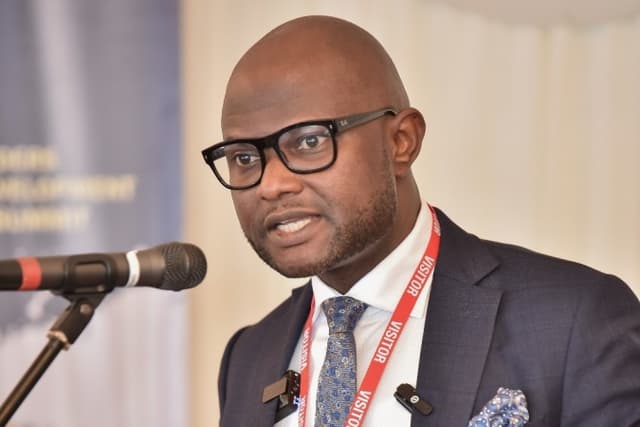
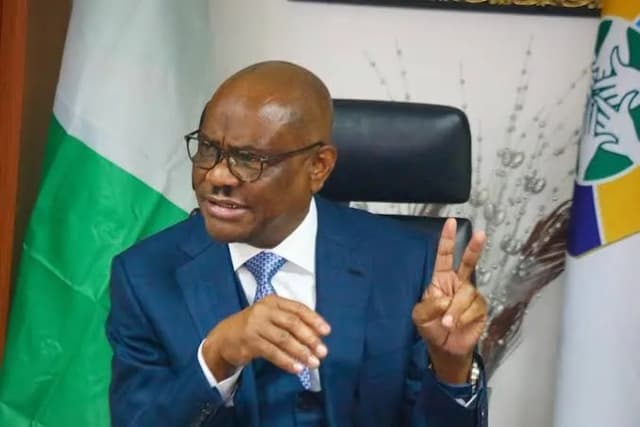
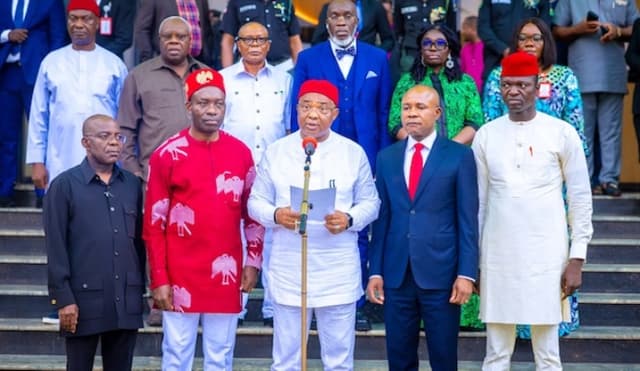
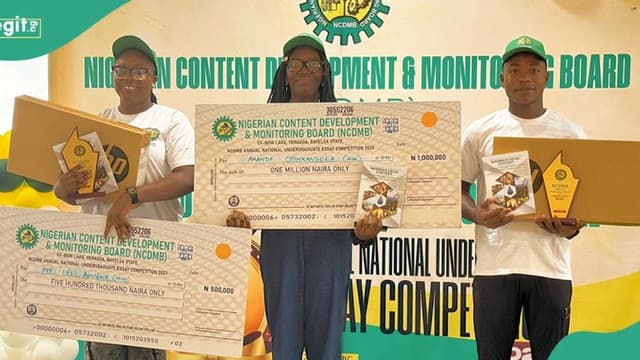
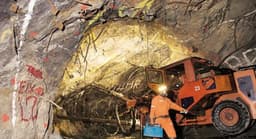

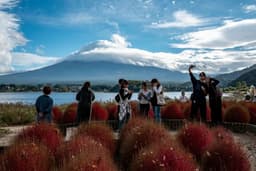
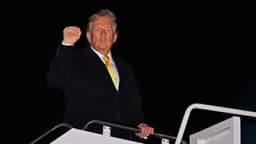


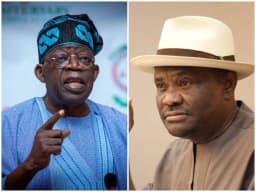
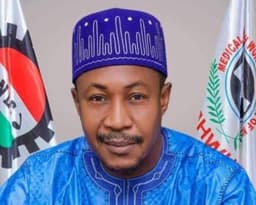
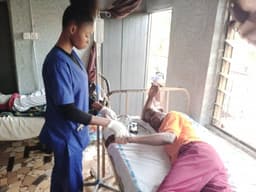
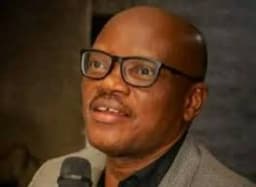
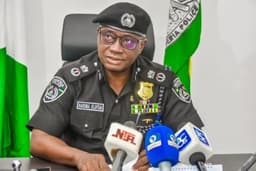
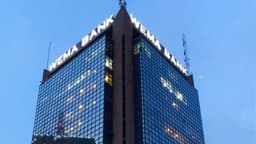
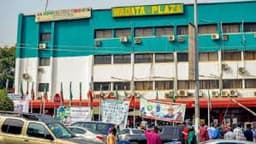
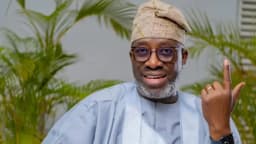
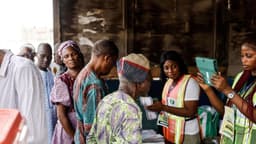
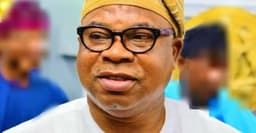
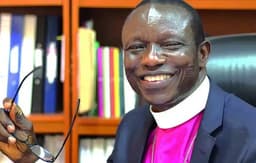


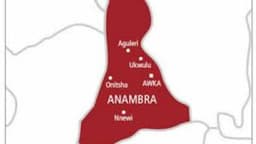

NEWS EXPRESS is Nigeria’s leading online newspaper. Published by Africa’s international award-winning journalist, Mr. Isaac Umunna, NEWS EXPRESS is Nigeria’s first truly professional online daily newspaper. It is published from Lagos, Nigeria’s economic and media hub, and has a provision for occasional special print editions. Thanks to our vast network of sources and dedicated team of professional journalists and contributors spread across Nigeria and overseas, NEWS EXPRESS has become synonymous with newsbreaks and exclusive stories from around the world.

Sim Fubara, suspended Governor of Rivers State
In a few weeks from now, the state of emergency government currently on in Rivers State will clock six months, having been imposed on February 19. The period of the undemocratic government, which saw the suspension of the elected governor, Sir Siminalayi Fubara, his executive council and the State House of Assembly, would be concluding its first instance of six months.
At the point of declaring the emergency rule, President Bola Tinubu stated that it was for the first instance of six months and currently, the people of the oil-bearing state and other vested stakeholders are already counting down to the end of that first instance.
During this period of interregnum, as it were, a lot has happened in the state within the emergency government, among the citizens, the gladiators and Nigerians at large. There have been different reactions from different quarters, with some in favour and others against, even to the extent of suing the Federal Government, while many also chose to be neutral and just watch the events unfold.
However, most important of the developments in the course of the emergency is the preparation of the interim government to midwife a democratic process – the conduct of local government election. The second significant event is the reconciliation of the all the warring parties: Governor Fubara on one part, the Minister of the Federal Capital Territory FCT, Nyesom Wike and members of the Rivers House of Assembly, led by Martin Amaewhula, on the other side.
The reconciliation, which dominated the media space during the period was another attempt by President Tinubu to resolve the crisis threatening not only democracy but the security of lives and property in Rivers State. Recall that the President had much earlier attempted settling the misunderstanding via the Presidential Peace proclamation with its widely criticized eight points.
Also noteworthy, is the fact that before the reconciliation and the public handshakes and back-parting, expectations and speculations were high that the suspension of democracy was going to be lifted either by May 29, during the second anniversary of the Tinubu-administration or June 12, the memorial of the ill-fated June 12, 1993 presidential election, which has been acclaimed the freest and fairest election in Nigeria but was annulled by the then military government.
Not a few Rivers citizens and Nigerians generally were disappointed that the emergency government continued to hold sway after both dates, with many wondering what the plans of the Federal Government were. Even the gladiators, at that point, seemed to have started running short of energy to sustain in the war, as some of the battles that characterised the conflict were thinning down.
Then came June 27, when the news broke out that a late-night meeting the previous night, supervised by the President got parties to the war dropping their gauntlet and embracing one another in a resolve to forge ahead in unity.
The reconciliation was later confirmed by Governor Fubara, one of the main dramatis personae in the conflict when he publicly announced his acceptance of the reconciliation and his readiness to work together with his estranged political godfather and Minister of the Federal Capital Territory (FCT), Mr. Nyesom Wike.
This heightened the expectation that democratic governance would return and democratic institutions restored to the state. But a full month after the reconciliation and just about two weeks to the end of the six months, first instance of the emergency rule, nothing is being heard about plans for the restoration of democracy in the state.
Feelings across the state have degenerated from outrage against the emergency government, verbal rejection and few litigations to now, that of stoic resignation to fate and whatever the Tinubu administration plans to achieve with the emergency system.
The disappointment was exacerbated by the actions of Governor Fubara, who dissolved all his political support groups with whom he was waging the war and his call on them to dismantle all structures hitherto deployed to the execution of the war.
Since then, all the governor’s support groups, including the Rivers Elders Forum, who were vehemently in support of Fubara, went mute and practically underground. Instead, the governor was seen in few public functions together with the Minister, Wike and Martin Amaewhula, Speaker of the Rivers State House of Assembly.
None of these moves has shown a clear indication or pointer to the recall of the governor or lifting the suspension of democracy in the state. No one from either the presidency or among the reconciled gladiators has said anything to suggest when to expect the resumption of democracy in the state.
In the midst of all these, the Sole Administrator, Vice Admiral Ibok-Ete Ibas, is busy preparing to conduct a local government election in which as part of the reconciliation deal, it was alleged that Governor Fubara must not project or sponsor any candidates.
Just on Monday, the new chairman of the State Independent Electorial Commission (RSIEC), Michael Ekpai Odey, announced that the local government elections would hold on August 30, a shift from an earlier date of August 9, set by the last commission headed by Justice Adolphus Enebeli (rtd).
The commission is preparing for the election despite mounting concerns by stakeholders over the legitimacy of the proposed election and the possible elongation of the emergency rule beyond the first six months. While unveiling the timetable for the council polls to stakeholders on Monday at the commission’s headquarters in Port Harcourt, the state capital announced the shift on schedule to accommodate issues of inclusion.
He assured the stakeholders, made up of representatives of political parties, religious groups, traditional institution, women groups and youths, with a promise that the commission would conduct free, credible and transparent elections. Odey stated that the announcement of the new date for the conduct of the polls, and guidelines, were by the provisions of SS.13 (5) and 20 (1) (a) of RISEC Law No. 2 of 2018 (as amended). “According to RSIEC’s ‘Revised Timetable for the 2025 Local Government Council Elections,’ activities for polls, which kicked off on July 28 with a meeting with stakeholders, end on September 13, 2025 with a second run-off for chairmanship election.”
Also, the cases instituted by litigants against the emergency rule are also still pending at different courts awaiting determination. Most prominent among them are the ones instituted by seven governors of the Peoples Democratic Party (PDP) from Bauchi, Adamawa, Bayelsa, Enugu, Osun, Plateau and Zamfara states at the Supreme Court, challenging President Bola Tinubu’s declaration of the state of emergency.
According to the court documents, the governors are seeking a declaration that the president’s action violates sections 1(2), 5(2) and 305 of the 1999 Constitution (as amended).
The second is that of Farah Dagogo, a former member of the House of Representatives. The suit, originally filed in the Port Harcourt Division of the Federal High Court, also challenged the constitutionality of the of emergency and was later transferred to the Abuja Division, following a directive from the Attorney-General of the Federation.
So, as the countdown to the end of the first six months, of the emergency government in Rivers comes down to weeks away and without any sign of the lifting of the suspension or recalling of Governor Fubara and the state assembly, many stakeholders in the state are wondering whether they would ever be called back or if the emergency period would enter another six months instance.
Stakeholders speak
Nonetheless, many are discussion in hush tones, the issues trailing what they perceived as some curious actions and steps being taken at the threshold of its six-month lifespan by the interim administration. However, many of them, including prominent members of the State Elders Forum have chosen to maintain a dignified silence on the emerging scenario. A member of the forum, Dr. Lawrence Ibiayemie and Courage Nsirmovu, who is a rights activist and lawyer, spoke on the prevailing situation. Reacting, Ibiayemie, who is a member of the Rivers Elders Forum, said that there was no more justification for the continuation of emergency rule in Rivers, just as there was no good reason also for the declaration of the state of emergency in the first place.
“There is no more justification. Democracy is not just about elections. It’s about letting the people have a say in how they are governed. It’s about checks and balances. It’s about fairness, justice and service to the people,” Dr. Lawrence stated.
He opined, “When we suspend democratic institutions, projects don’t move, salaries are delayed or misapplied and the people who are the real owners of government are left in the dark. It’s hurting us all.
“For too long now, local government councils are not functioning as they should. Our House of Assembly isn’t working. Many important decisions that should go through democratic processes are now being handled behind closed doors. And the question we must ask is this. We feel it in our communities. Roads remain bad. Health centres are empty. Youths are idle. Markets are shrinking. Investors are afraid to come in. The uncertainty affects everyone.”
According to the political analyst, “This is not about party politics or who is in power. It’s about all of us—the future of our children, the dignity of our communities, and the image of Rivers State. We are a great people, and we deserve better.
“It is time to return to the rule of law. It is time to let the local councils work. It is time to let the people’s representatives speak and act freely. It is time to rebuild trust in our institutions. I call on our leaders at all levels—to put the people first. Let the constitution guide us. Let peace and justice lead us. And let us all say together: Bring back democracy to Rivers State,” Dr. Ibiayemie stated.
On his part, Nsirmovu, who is also the coordinator of the Pilex Centre for Civic Education Initiative equally shared the position of the elder that the reason adduced for the emergency rule in the first instance. He said. “There is no justification to continue suspending democratic institutions in Rivers State. There was no justification in suspending democratic institutions in Rivers State ab initio because Rivers State was not at war or intense breakdown of law and order like Benue or Plateau State. Rivers State was at peace when the declaration was made and we are still at peace after the illegal declaration.” He referenced the Constitution and Case law authorities in the case of AG Federation vs. AG Lagos State and AG Plateau State vs. AG Federation to conclude that the construction forbids the President from removing or suspending elected officers. “The action of the President is a continuing illegality and impunity and hence without any lawful justification whatsoever.” he declared. Nsirmovu stressed: “Politically, the reconciliation between the disputing parties is a good reason to reinstate the governor and apologise to him for suspending him illegally.”
However, he chided the weakness of Rivers’ electorate in the face of what he saw as an act of injustice. “We must learn to actively resist any unconstitutional or unlawful act of whosoever. As such, we, the Concerned Civil Society Organisations in Rivers State and Pilex Centre, call on the President to forthwith restore the institutions of democratic rule in Rivers State and apologise to us. The President has dragged this pain too much and the people may react in ways that he may not be able to control.” (Nigerian Tribune)